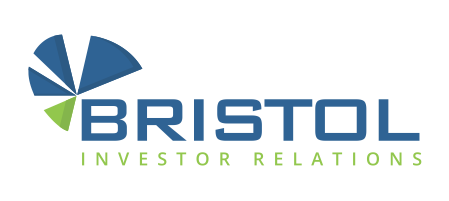Communicating in a COVID-19 Landscape
Communicating in a COVID-19 Landscape

The fast moving COVID-19 pandemic is undoubtedly challenging for many companies, especially from a communications perspective. Market volatility, broader business impacts, employee safety concerns and the resulting changes and impact on financial performance are currently all top of mind for companies. The upcoming days and weeks will certainly bring a changing landscape and below are some things to consider for investor relations and corporate communications practices for your firm.
- Get ahead of the message and be proactive in your communications. Even if your business or region of doing business is not drastically affected – chances are it will be in the weeks and months ahead so pre-empt things by addressing what you currently know and communicate what your plan is today and in the upcoming weeks. Take hold of the narrative versus staying silent on things – it is a better option than to let bystanders disseminate rumors and form opinions not based on facts that you know.
- Define what your policies are as a company. Communicate them internally to everyone concerned and externally to relevant stakeholders. This should include all business continuity, emergency and financial policies that involve staff, stakeholders, suppliers etc. From an ESG perspective, it shows the public that management and leadership are aligned and thinking ahead across various issues.
- Be clear and consistent with the messaging. Outline what your key messages are for each topic and when providing updates, be aware of possible conflicting information or changing policies or outcomes that have taken place since the last communication. When addressing financial impact, deliver the message and if/when things change, communicate these changes and what positive/negative impact this might entail. Being clear provides investors and analysts with the ability to forecast or revise estimates and provides a level of comfort versus the alternative of silence on the matter. It is vital is to have a clearly defined communications plan and to ensure everyone is aligned across the company and to know who the key spokesperson(s) are and how to communicate business updates. Acknowledge what you know, what is yet to happen, what is unknown and what the possible impacts might be.
- Be transparent and honest at all times. This is easier said than done during a pandemic with situations changing daily, but base messaging on facts and information you do have at hand and disclose all relevant information. When questioned by concerned shareholders or staff, have the difficult conversations as it is a better alternative that to remain silent and leave it up to people to make their own conclusions. This is a great opportunity for management to show their commitment to thoughtful and strategic planning, transparency and competency in dealing with the unknown. If done correctly, the messaging will speak bounds about a company and its leadership and its future trajectory prospects and post covid-19 landscape.
- In a world with multiple communication options, choose to go digital rather than going silent. Leverage existing company social media accounts to issue updates or announcements. Instead of embarking on roadshows consider video conferencing so people can still see and engage with you. Create an updates section on your IR or corporate website with all relevant news and updates and disseminate over social platforms available to your firm. Use one of the hundreds of products or apps to stay in touch with staff who are working remotely via video, instant chat or conference. Not only does it maintain some sense of normalcy but it helps workers stay connected to one another during self- isolation periods. This global issue will test all companies and their planning and approach to these issues will have some companies faring better than others. Invaluable lessons are being learned as to what does and does not work, and a proactive, efficient communication strategy will allow you to adapt quickly.
Over the days and weeks, we will see increasing work forces becoming scattered, straining of supply chains and a diminishing demand of certain products and services in the broader economy. Management teams can really set themselves apart from competitors on how they deal with this crisis and the surrounding communications around it.
